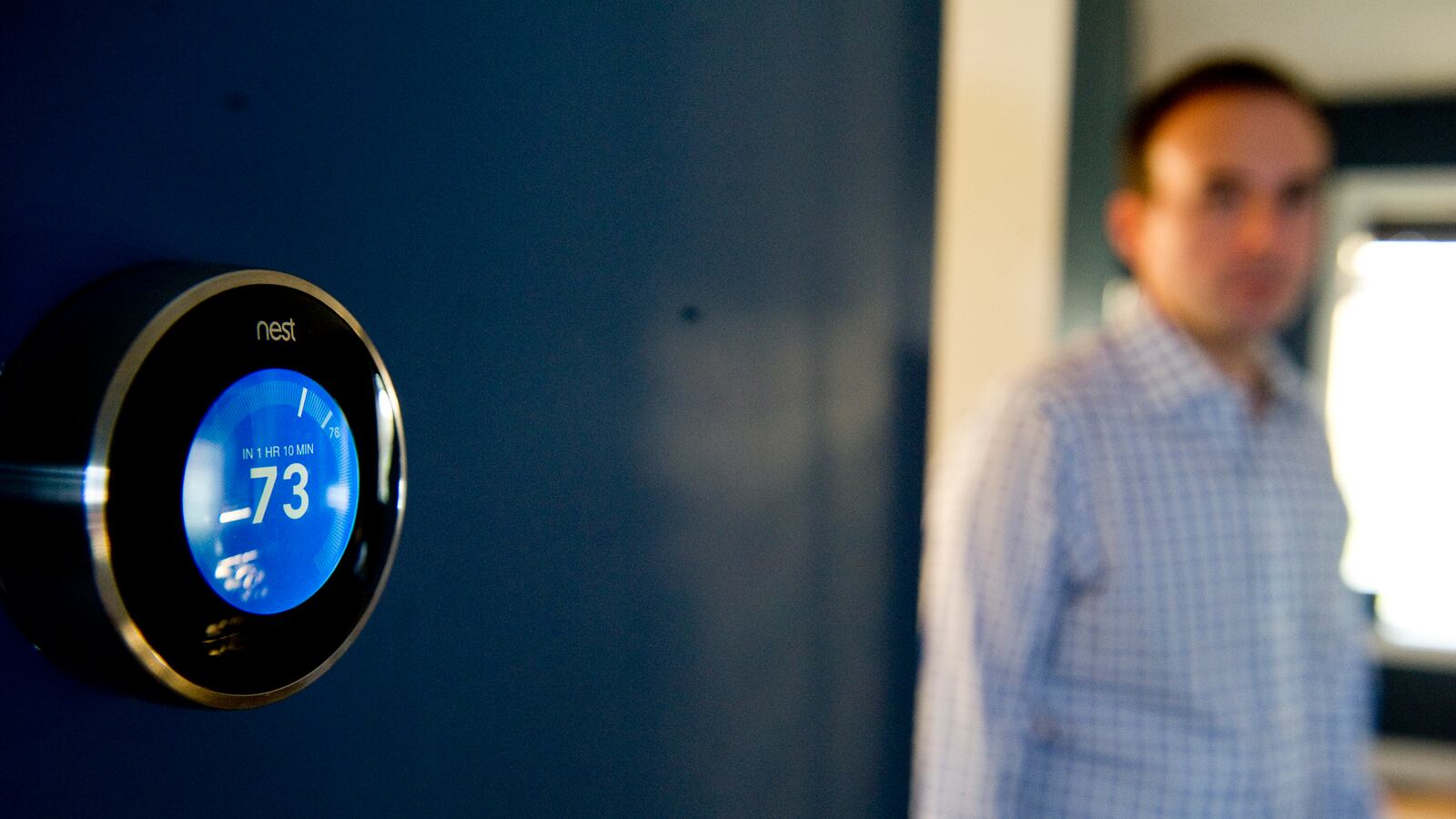Silicon Valley’s latest hot new app doesn’t have a funny name or purport to be a new social medium. In fact, it’s a pretty pedestrian piece of hardware. The hipster former Apple guys who reinvented the thermostat have come up with the next big thing: a smoke alarm.

Nest Labs, founded a few years ago by Tony Fadell, who helped design the iPod, has a smash hit with the Nest thermostat—a digital, Apple-looking temperature regulator that is easily programmable, hooks up to the Internet, learns your family’s habits, and just might save the planet. I installed two in my home this summer, and, aside from being great conversation starters, they helped cut our air-conditioning costs. The company is privately held.
The thermostat seemed an unlikely space for disruption. Nest’s next venture seems to be an even more unlikely one: the smoke-detector market.
An outsider’s mentality informs the design of the Nest Protect. Most homes are required to have one. They are generally installed by builders who buy them based on a low cost, but who don’t actually use the device. Because most consumers don’t know any better, they accept the low functionality.
Fadell thought different. “When I was designing a house where the thermostat came to me, the same thing happened with the smoke alarm,” he said in a talk at Business Insider’s Ignition 2013 conference this week. The ceilings were dark, and he couldn’t find a dark smoke alarm that would match. Then he started to look at how they worked. “They’ve been around for 40 years, and they haven’t changed,” he said. To a degree, smoke detectors are analog devices in a digital world. When the battery gets low, they beep a lot, which causes people to disconnect them. They’re sort of dumb. They can be set off by steam from a boiling pot of pasta or by heat rising from an open oven door, causing, well, alarm. And it’s a huge market. “There are 750 million of these in the U.S., and 40 million are sold annually.” Indeed, the purchase of smoke alarms is mandated. Fadell wondered why it wasn’t possible to get information instead of beeps, and how people could avoid being woken up by beeps from low batteries.
His team of engineers set to work on a new device, a combination smoke and carbon-monoxide detector. The Nest Protect speaks to you, rather than beeping. “Emergency. There’s smoke in the living room!” It gives a warning when it first detects smoke. And if turns out the heat it sensed was just from cooking, you can turn it off with a wave of the hand (in much the same way a quick hand wave wakes up the Nest thermostat).
Ironically, Fadell says he isn’t a huge fan of what techies are calling “the connected home.” While the concept of refrigerators that talk to stoves may be appealing to young technophiles, most people are interested in something more basic. However, he does see opportunities for the devices his company makes to work in concert. For example, research has shown that most carbon-monoxide alarm incidents are triggered by a malfunctioning furnace. If the Nest Protect detects an elevated level of CO2, and it is wired to communicate with the Nest thermostat, it could theoretically shut off the furnace automatically.
As with the Nest, the Nest Protect, which isn’t shipping just yet, is set at a higher price point—about $129, significantly more than standard smoke and carbon-monoxide detectors. It’s not because, like Apple, Nest desires only to make premium products. Rather, it’s because, like Apple, Nest wants to make money. “We’re not like an eyeballs-driven model,” said Fadell. “We sell things and we make money on every thing we sell.” As volumes rise, Fadell said, the price will come down.
Utilities and energy-efficiency programs have helped defuse the high cost of the Nest. Just so, Fadell says he believes he can get insurance companies to help fund the rollout of the Nest Protect. Insurance companies are willing to offer lower premiums to drivers who consent to have their driving monitored. By the same token, he believes insurers will offer lower premiums to homeowners who demonstrate they’re taking extra steps to keep their homes safe.
In Silicon Valley, hardware may be passé. Hewlett-Packard, the giant printer and computer maker, is valued at less than half of Facebook, and Cisco Systems just reported a disappointing quarter. But startups like Nest Labs are showing that you can still grow and prosper by making stuff.






